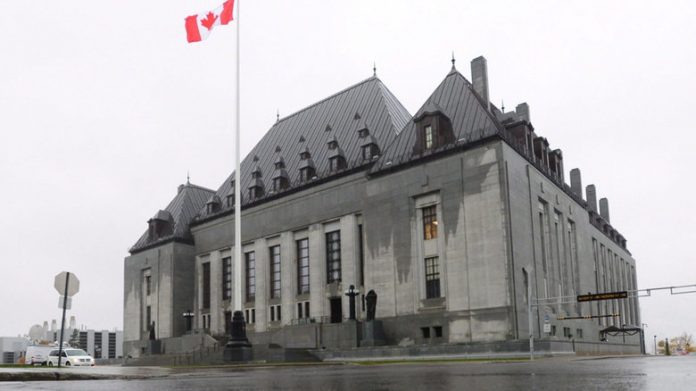Canada’s Supreme Court is currently hearing an appeal that may result in lawmakers being forced to give First Nations a role while drafting legislation that impacts treaty rights.
Dwight Newman, a law professor at the University of Saskatchewan, stated that the case was “tremendously significant” regardless of its results, noting that it could possibly “fundamentally transform how law is made in Canada.”
The court is hearing a challenge filed by the Mikisew Cree First Nation in the country’s Alberta province. The petition seeks a judicial review of the changes that were undertaken under the previous Harper government to various laws including the Fisheries Act, the Navigable Waters Protection Act the Species at Risk Act, and the Canadian Environmental Assessment Act.
The First Nation has contended that as the changes may affect its treaty rights, the government must consult it as a constitutional duty . Most cases related to the Crown’s duty-to-consult concern decisions made by regulatory bodies, but this particular one extends the duty to law-making itself.
First Nations Not Given A Chance To Discuss Issues
Lawyer Robert Janes, who will represent the Mikisew said that the case tackled “consultation about making the rules.”
According to Janes First Nations are often not given the opportunity to discuss real issues before regulatory boards.
He noted that the larger issues that First Nations want to tackle are often dealt with during the developing of the statutes. With the issue not being dealt with during the statute design, “the (regulator) doesn’t have the tools to deal with the problem when it comes up.”
An instance of this is the legislation that blocks Alberta’s energy regulator from considering treaty rights, which is majorly the root cause of all concerns expressed by the Indigenous related to energy development in the province.
Janes contends that by ensuring First Nations have a voice during the drafting of the law, there will be better legislation.
The government however doesn’t agree, noting that the such consultation “may overwhelm and affect the ability to govern”. It further states that allowing such consultation would result in intrusion of one branch of government into the work of another .
The government has also noted that it is “not the courts’ role” to put down restrictions or fetters related the law-making process of the Parliament.
Government Against Consultation Being Forced
While the federal lawyers say nothing stops the governments from consulting First Nations during the drafting the law, forcing them to provide Indigenous representatives a seat at the table “diminishes Parliament”, as it is supposed to be the most powerful body in the land.
The move will also result in giving treaty rights a preference over charter rights.
Highly Significant Case
The appeal is being closely watched, with five provincial attorneys general and seven Indigenous groups filing to join as intervenors.
According to Newman some provinces, like Saskatchewan, already consult First Nations while drafting relevant legislation. He noted that the Supreme Court’s decision in the appeal will be “amongst the most significant duty-to-consult cases that have been decided.”.
Janes said that one of the results may be to initiate reconciliation, but added that it does not make sense that one side makes the rules, and then just “have a conversation afterwards.”



